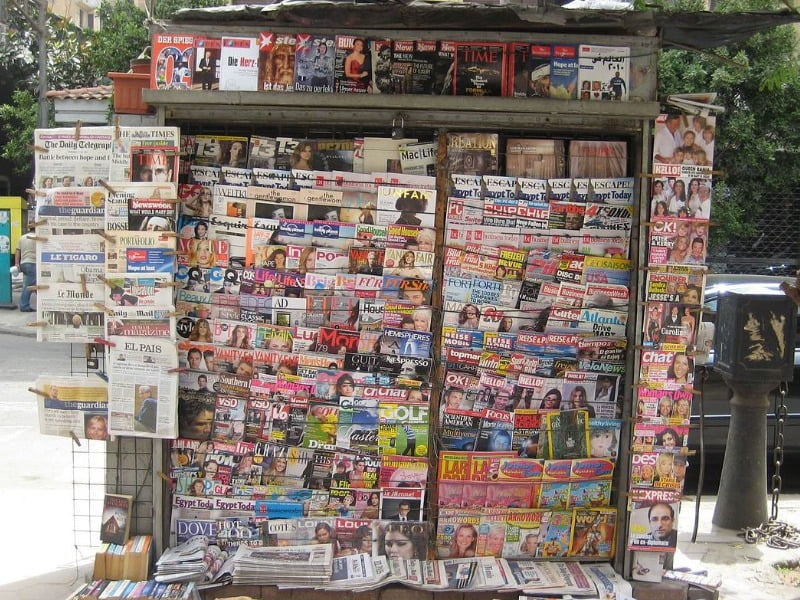Google has hit back at the government’s plan to force it to share ad revenue with local media companies, arguing it is doing these companies a favour by featuring their content for free, like a digital newsstand.
Last month the federal government announced it had instructed the Australian Competition and Consumer Commission (ACCC) to develop a mandatory code of conduct to address the “bargaining power imbalances” between tech giants like Google and Facebook, and Australian media companies.
This would focus on imposing a pay-share on ad revenue generated through the content of local news sites, along with more transparency around the algorithms used to sort this content.

The code had been under discussion in a voluntary form for four months, but the ACCC informed the government it had no confidence an agreement could be reached on the issue of revenue sharing.
In a blog post aimied “misconceptions”, Google Australia managing director Mel Silva said the global tech giant had been working with local media companies on the issue.
“From the outset, Google actively engaged in the voluntary code process. Google acted in good faith, working constructively by consulting with more than 25 news media businesses – broadcasters, print and online publishers from metro and regional areas,” Ms Silva said.
“We met with some publishers on multiple occasions to work through and understand complex issues,” she said.
“The ACCC asked Google to deliver a progress report by the end of April, which we were on track to deliver before the government changed the deadlines and shifted focus to a mandatory code. We have sought to be constructive in our approach from the outset and have provided our update to the ACCC this week.”
Revenue generated from Australian news content is small beer for Google, Ms Silva said, and is only made through users clicking on ads, not the actual news stories.
“Searches for journalistic related queries are a very small proportion of all searches and very rarely return ads. When a search query does return an ad, it’s up to the user to decide if they click on the ads – Google does not get paid for showing the ad, only if the user clicks on it,” she said.
Ms Silva also said that Google is doing these publishers a favour by featuring their work, aiming to positing the tech giant as a digital version of a retailer or newsstand displaying a newspaper, but doing this for free.
“The fact is Google drives traffic to news sites more than 24 billion times a month globally. All publishers on the internet want to be found by new users, alongside businesses that include news media interests,” Ms Silva said.
“This is traffic they say is important for their businesses, allowing them to build relationships and make money by showing people ads or opportunities to subscribe to their publications. News media recognises the economic value they receive from this referral traffic.
“The traffic we send has substantial value. In 2018 alone, Google sent more than two billion visits to Australian news sites from Australian users, and a further billion visits from users outside Australia. Everyone benefits from this exchange.”
The competition watchdog’s final report from its digital platforms inquiry paints a very different picture of Google’s relationships with Australian media companies. The ACCC found Google has “substantial bargaining power” in dealing with these companies, and small algorithmic or policy changes can cripple them.
It found that Google is an “unavoidable trading partner” for news media companies, and these businesses are unable to negotiate individually with the tech company.
“Many news media businesses would be likely to incur a significant loss of revenue, damaging their business, if Google users could no longer click on links to their website in search results,” the ACCC said in the report.
Australia isn’t the first country to try to make Google share revenue with news company, but it would be the first to do so successfully. When Spain attempted to do something similar, Google responded by threatening to simply remove all local content from searches, or shut down Google News entirely there.
While some European companies have tried to force Google’s hand through copyright laws, Australia is instead tackling it as a competition issue. Treasurer Josh Frydenberg has admitted the government is facing an uphill battle against Google, but said they “won’t bow to their threats”.
The model imposed by the ACCC could force Google to pay a percentage of the costs to produce a piece of news content or, more likely, a share of the ad revenue generated by a news story. The code of conduct will be produced by the competition watchdog by July, with further consultations to take place afterwards.
Do you know more? Contact James Riley via Email.

